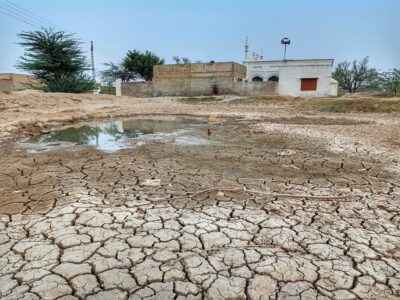On the heels of the latest IPCC report and beginnings of UN Water Week, more than 70 researchers, government officials, consultants, and academics gathered on March 21 for Accelerating and Rethinking Water Action in Cities. Co-hosted by the Columbia Climate School, Columbia GSAPP, Urban Design, Columbia World Projects, the Government of the Netherlands, and Deltares, participants came together to discuss alternative solutions and approaches for water action in cities.
The morning started with introductions and framing remarks from the organizing team. Thad Pawlowski, managing director of the Center for Resilient Cities and Landscapes offered community-centered practice and an accountability-based lens to guide the day. Moreover, he provided a space to explore how professional practice and academia could hold each other accountable in decolonizing water-based planning in cities. The critical importance of this issue was underscored in remarks by Rajiv Joshi and Johanna Lovecchio from Columbia Climate School’s Climate Action team; Kate Orff, director of Urban Design at Columbia GSAPP; and Dennis Van Peppen, manager of global issues and water at Netherlands Enterprise Agency.
Throughout the first half of the workshop, presenters emphasized the importance of community-driven, place-based, and nature-based solutions in reimagining resilient communities and cities. Particularly, when speaking to the relationships that exist between communities and their partners in design, presenters emphasized the importance of building trust, meaningful and consistent engagement and feedback loops, and accountability to transparent planning and design processes. Participants also reflected on what’s needed to speed up climate action in cities, and how this future might be realized.





Building from the momentum of the earlier presentations, participants later split off into smaller groups to discuss the idea of letting go of the purely technocratic definitions and processes and ideas of what it means to be an ‘expert.’ They also discussed the challenges of working in siloed institutions that lack bridges and accountability to communities that they are meant to serve. Finally, the groups grappled with ideas and examples of centering Indigenous and community-based knowledge in ways that also honor the ways in which technical planning and academia have harmed these relationships in the past.
While participants were working in small groups, they cultivated many takeaways, including:
- We should emotions and spirituality back into project work — make visible our personal relationships with projects.
- We should have a platform for failures. We need to acknowledge and learn from mistakes.
- Place-based proposals and community expertise are important.
- We should create more space for listening and knowledge sharing, as well as more parameters for transparency.
- Let go of extractive thinking and expecting past results, and the idea of the ‘expert’.
- More education is needed to enable future leaders.
- We should shift investment priorities toward enabling environments, governance mechanisms, resource- and benefit-sharing models, and community-driven projects.
Wrapping up the day, Peter Twyman, deputy director for Columbia World Projects, Jaap Slootmaker, director general for water and subsurface of the Netherlands Ministry of Infrastructure and Water, and Ariam Torres Cordero, a postdoctoral research scholar with Columbia World Projects, gave closing remarks. All three reflected on what actions we all can take to center communities in our work, lead with humility and heart, and better learn from our mistakes to improve in the future.



